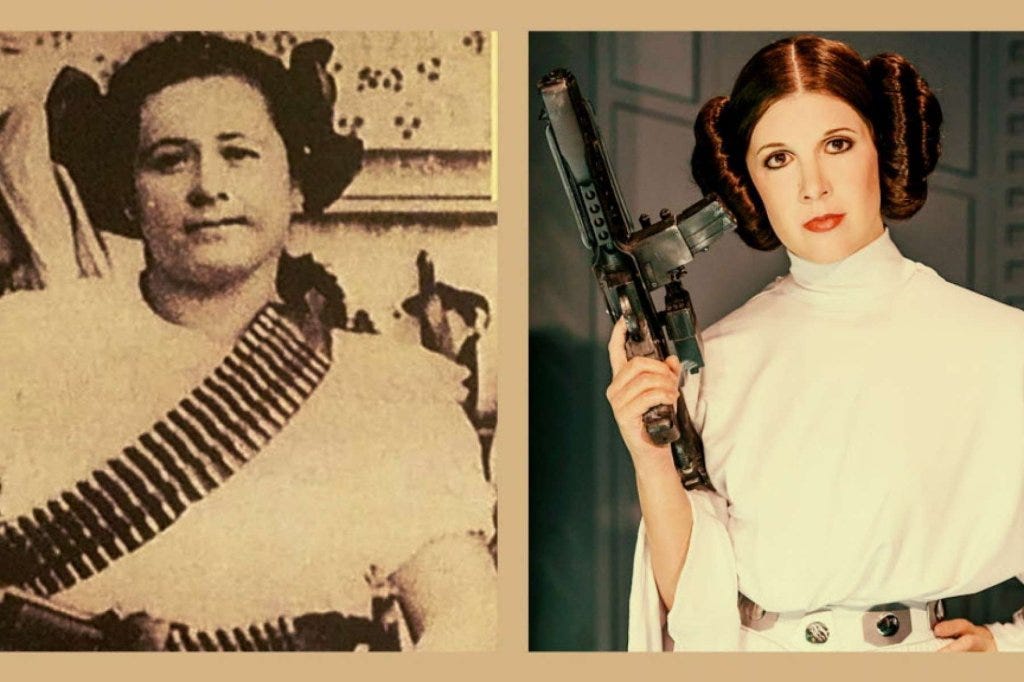Episode IV: A New Hope?

You already know the end anyway, and I promise to take you back to the beginning because that’s the only way it all makes a kind of (non)sense. I’m a child of the 70s, though, and a medievalist to boot, so I’m starting from the middle…
(NOTE: please take a minute to read my Disclaimer/Caveat post here. I want to be crystal clear that this is a space for me to express my version of events, and my opinions about the present and future of higher education in the U.S. It’s also a space for me to explain my philosophy of organizing, and why I think higher ed workers need more union power.)
If the last 14 years of my life had been a novel (and I haven’t ruled that out yet…), the climax would have been in November, 2019, when faculty and staff at William Paterson were organizing for a strike authorization vote. That was the moment when my worlds—intellectual labor and grassroots organizing—really merged for a minute.
This post explains why we were taking a strike authorization vote in 2019, and why it felt like hope at the time. I’d be lying if I said I wasn’t terrified at the prospect of actually walking out on my students—no one wants to strike—but the state was stonewalling us (yet again) and withholding labor is the strongest tool workers have. And it works. Encouraging colleagues to take that vote felt like real progress, a genuine effort to engage university workers and help them access their collective power.
Now, some powerful voices will claim that it’s illegal for NJ public workers to strike, but the truth is more nuanced. Rutgers workers had threatened to strike the semester prior to our vote, and as their FAQ page states, “The State Constitution and the NJ Employer-Employee Relations Act are silent on this issue. There is no State statute that prohibits strikes or work stoppages by public employees, including faculty...” WPU’s statewide contract definitely has a no-strike clause, but that’s standard language. And besides, the legal hurdles for management generally mean that a short, strong strike can win before things even get to the point of legal repercussions for the union.
As it happened, a huge majority of faculty and staff at WPU voted in favor of striking if necessary, and that vote got us a new contract. Hope! Of course the union would start developing more grassroots campaigns, educating members and training them in effective direct action strategies, developing real collective power on campus, right?? Sadly, that’s not what happened at all.
It goes without saying that by Spring 2020, everything had changed. Campus closed down in mid-March, and the entire WPU community was terrified and scrambling to cope with the pandemic—just like the rest of the world. Union members re-elected longtime leadership in a frenzy of remote meetings, and we all held our breath waiting to hear how many of us would be laid off in the coming year.
So, yeah, it was great that we didn’t have to strike for a new contract in 2019, but if we got such great buy-in for that authorization vote, why take direct action out of the equation when members’ jobs were on the line? Wouldn’t the administration want to avoid the bad look of escalating job actions, negative press attention, and the threat of a strike? Let me be clear, I’m not saying a strike was the best or only strategy, but nothing even close to that was ever a part of the discussions.
William Paterson had been struggling with enrollment and retaining students for years, and the Administration claimed that COVID was the last financial straw. In its public-facing statements, the union basically took that claim at face value and “negotiated to avoid layoffs.” Many members were disturbed that our union didn’t seem willing to use our collective power—direct action—to eliminate layoffs entirely. So we formed the Solidarity Caucus.
That’s when the bullying really kicked in. For me, personally, the next year and a half would bring the ultimate toxic cocktail of academic BS and unhinged, slanderous attacks—efforts to discredit me and my colleagues in order hold on to power. I was even accused of giving people “false hope.” But what is hope if not an optimistic lie we tell ourselves? Isn’t all hope “false” to a degree? And what is the purpose of a union if not to give people some hope that they might better their circumstances? I am acutely aware of the privilege inherent in my own situation—not only did I have stable employment during the pandemic, but I was able to work remotely. Nonetheless, as I taught my classes and cared for my traumatized children, I struggled to maintain hope in a haze of pressure and cruelty. I mustered my most hopeful self and I fought like hell to strengthen member power in our union so that my termination might not be entirely meaningless. I had already left “the academy” once, and I was prepared to do it again. What I wasn’t willing to do was leave WPU in the hands of those who would prefer to accept the ballooning administration and their exorbitant salaries as inevitable; I believe in the value of higher education as a public good, and I believe that taxpayer dollars ought to go to the dedicated faculty and staff who directly serve students. My guess is that a lot of folks in NJ would agree, if they actually heard the whole story.
Is there still room for hope? I know that my colleagues sure need a lot of it, and I wish I could do more than just pontificate on a blog. I also know that resisting dictators (Clara De La Rocha) and fighting Empires (Princess Leia) requires an endless supply of hope, so if my musings lend a hand, then I’ll keep writing. There’s a lot at stake.
As Rose Tico put it at the end of The Last Jedi, “That’s how we’re gonna win. Not fighting what we hate. Saving what we love.”




